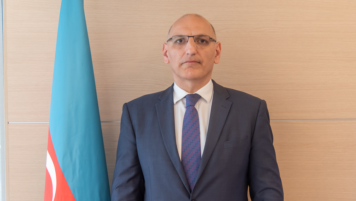By Capt. Vira Miller
Among the hundreds of soldiers who participated in the second iteration of Eagle Partner, a bilateral exercise aimed at increasing readiness and interoperability between the US and Armenia, were nine US military members of Armenian descent who volunteered to serve as interpreters.
Exercises like Eagle Partner require extensive preparation, logistics, and resources, which is only possible through significant cross-nation communication. Interpreters bridge the language barrier and make exercises like this possible.
These nine service members came from different places, units, and backgrounds: the Army, Space Force, Marine Corps, and Air Force. There was a combat engineer, a combat medic, an attorney, a cavalry scout, and an electronic warfare officer, to name a few. They all stepped down from their primary jobs to come to Armenia and translate between the U.S. and Armenian troops.

“Originally, I got a call from someone from the Army, and they asked me if I wanted to go on an exercise in Armenia as a translator,” said US Marine Corps Capt. Hovsep Chaparian. “At first, I thought they were joking, but it was true. So, I followed up, and they said we would be translating in the field. My day-to-day job at USMC is an office one, so any opportunity to go out and see what the military is doing in the field, I’m all about it.”
U.S. Army 2nd Lt. Andrew Rene Karazi, assigned to the 250th Expeditionary Military Intelligence Battalion, California Army National Guard, said, “I learned about this exercise through Armenian friends online. Before coming here, I was interviewed to verify that I could speak Armenian fluently and later brought onto the mission.”









